Finding peace in Cork after leaving Ukraine
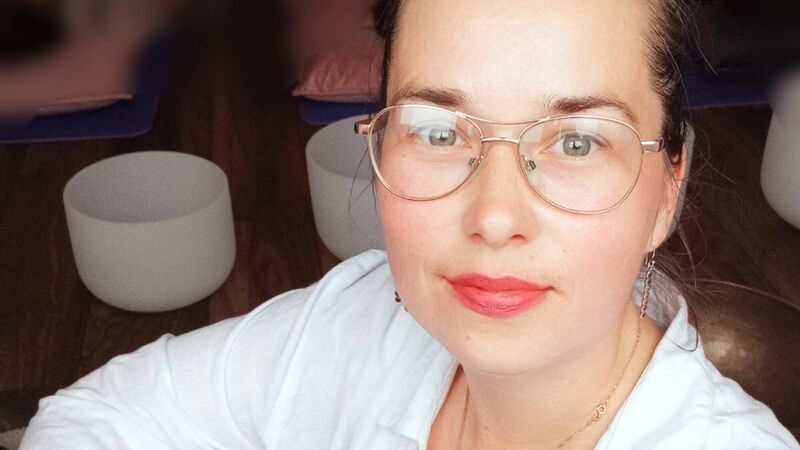
Maria Stolbova arrived in Cork in 2022 with her young son and just one suitcase. "We started our life in Ireland not from zero but from a deep minus," she said.
Ukrainian Maria Stolbova’s yoga studio on Cork’s Academy Street is an oasis of calm where this refugee serves me apple and hibiscus tea in a glass cup.
Maria has come a long way since arriving here in 2022 with her young son and just one suitcase, having left behind family valuables including photographs and video recordings spanning generations.
The current war in Ukraine is not Maria’s first experience of conflict either.
Before the 2014 war in Ukraine, she and her son, her husband, and her parents lived in Donetsk. When it was occupied by Russian forces, they moved to the city of Kreminna in eastern Ukraine. Maria worked occasionally as a business process manager in Kyiv.
When, three years ago, on February 24, 2022, Russia went to war against Ukraine, Maria and her son left Kreminna and went to Kyiv. But it was under siege.
“My son and I then spent a short time in Lviv, completely exhausted and under constant air raid sirens,” says Maria.
She asked her husband (who planned to stay in Ukraine and help with defence, despite his disability) to get her and their child out of the country.
“At that time, my exhaustion was so severe that I could barely move or buy tickets – or do anything at all.”
She and her son came to Cork in March, 2022, and initially stayed at Cork Airport Hotel.
“Later, a charity organisation (linked to) St Finbarre’s Cathedral, helped us with housing. We are endlessly grateful and give thanks every day. This support helped us survive and rebuild our lives here.”
Maria’s husband has joined the family in Cork.
Leaving their home was traumatic.
“Everything was left behind in our occupied home. I know for certain that Russian soldiers lived there for a few years and may still be there now. I also know that nothing remains in the house. Neighbouring homes, and parts of ours, were damaged by bombing.
“We started our life in Ireland not from zero but from a deep minus. I remember lying in exhaustion during that time. My son needed to be enrolled in school; I had to arrange everything, take care of paperwork, find doctors, search for courses and so on. I had to cope with worry and pray for my parents, hoping they would survive and come to us, especially my mother, who was able to escape last of all.”
What saved Maria was studying and going out to meet people.
She spoke some English before she came here. In Cork, she attended English courses at the English Welcome School and is now quite proficient in the language.
She also is involved in women’s circles and events at NASC, the migrant and refugee rights centre. And Maria is almost finished studying a mindfulness and wellbeing course at the adult education department at UCC.
She has been giving meditation, yoga and mindfulness classes for over 12 years. She is a psychologist who does counselling, having worked in that area for seven years in Ukraine.
“What helped me find peace during this challenging time are mindfulness practices and regular meditations, including sound meditations in the studio. It also helps a lot that my husband and I don’t just sit still. Despite being a war veteran with a disability, my husband does everything he can to be useful. Together, we created the Ukrainian Culture Festival, ‘Our Homeland’, which has been running for three years with the support of City Hall, UCC and Cork City Partnership.
“We also founded a non-profit organisation, ‘Victory Ukraine’, dedicated to cultural events. This year we are planning to host an international festival of multicultural arts in Cork city. This gives us a sense of purpose, the feeling that we are doing something meaningful and a deep connection to art.”
Maria, who feels well-integrated in Cork, says people, including UCC staff and her son’s teachers, are “supportive, kind, interesting and intelligent.” Her son attends Glasheen Boys National School.
In April last year, Maria set up the Sky Sound Mindful Way Academy, which, as well as offering yoga classes, also provides psychological adaptation programmes.
She painted the studio herself and her Ukrainian friends “patched up the holes, installed soft panels and put up mirrors”.
The studio is open to people who want a release from stress and anxiety and “want to find their inner core. I believe that discovering one’s inner core is what helps us move forward through all of life’s challenges, be they material, psychological or physical.”
According to NASC, there are approximately 1,500 Ukrainians living in Cork city and 2,400 in county Cork. “However, due to ongoing relocations, these numbers continue to change,” says Tania Baliukonis, information and support officer at NASC.
Around 45% of Ukrainian refugees in Cork are women and 28% are children. (Most men were not allowed to leave Ukraine as they are needed to defend the country.)
“Most Ukrainian adults are now employed, but certain groups face significant challenges. Single mothers, in particular, struggle due to the lack of childcare services.
“Those with health issues or those living in remote areas also face difficulties finding work. Older adults, especially those in their fifties and beyond who do not speak English, often find it hard to secure employment.”
Ukrainian refugees are provided with temporary state-provided accommodation “which I would refer to as emergency accommodation. This can vary from hotels to hostels, monasteries, convents, and public spaces such as the Green Glens arena in Millstreet.
“In some ways, Direct Provision centres offer better living standards as they have set standards of accommodation.”
Not all accommodation meets such standards due to the emergency nature of the housing provided, says Tania.
The third anniversary of the war in Ukraine will be marked in Cork on Sunday, February 23, with the support of Cork City Council and the Embassy of Ukraine in Ireland.
The Kalyna Hub is holding a commemorative event, ‘Europe on Fire: 3 years of full-scale war’.
There will be a march in support of Ukraine at the national monument on Grand Parade at 1pm as well as an educational and cultural event at Millennium Hall, Cork City Hall, at 2pm.
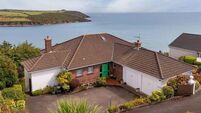
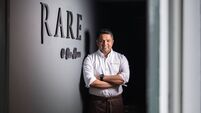
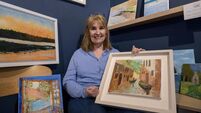
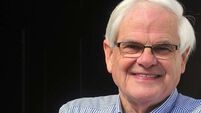



 App?
App?


